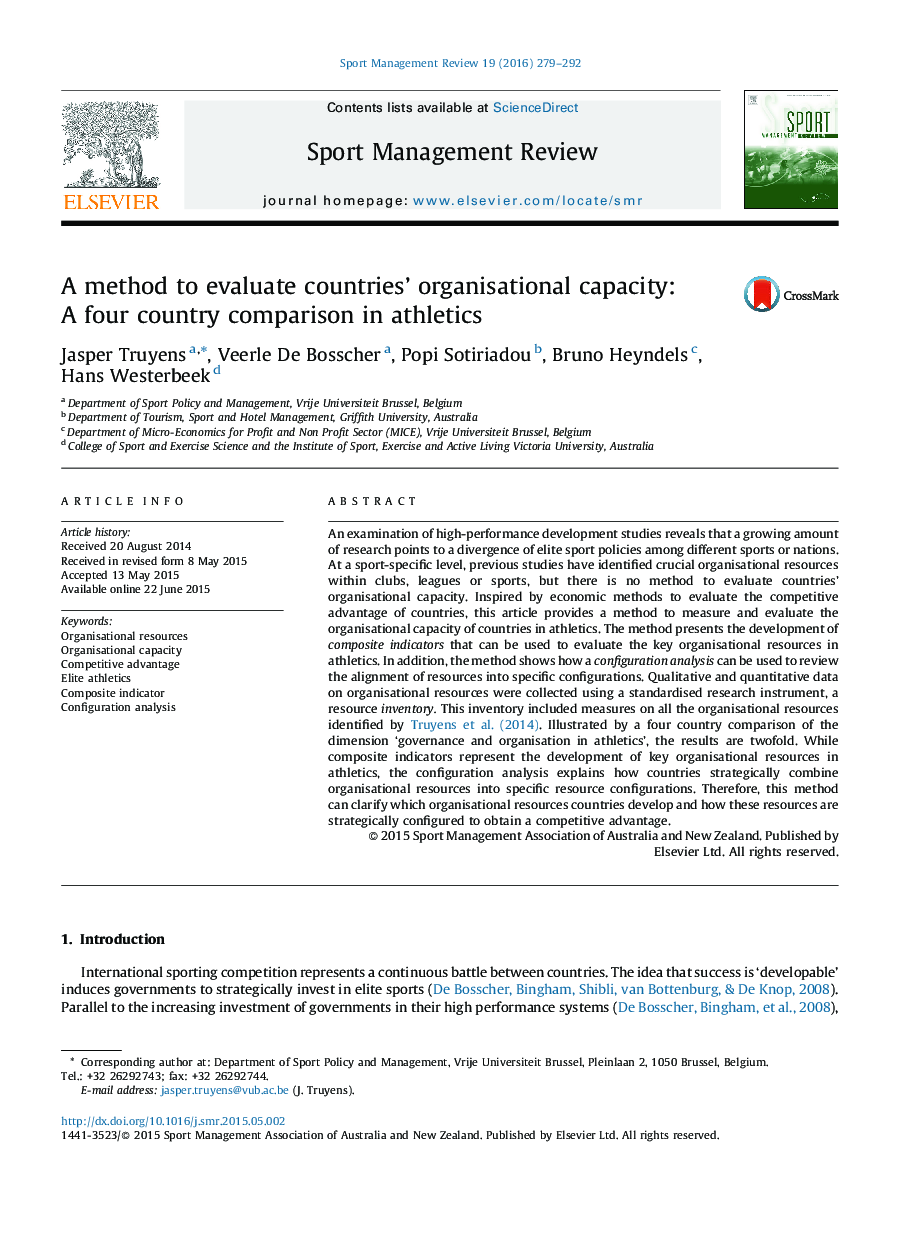| Article ID | Journal | Published Year | Pages | File Type |
|---|---|---|---|---|
| 140774 | Sport Management Review | 2016 | 14 Pages |
•Only a small amount of research has focused on elite sport practices in one sport.•This article provides a method to evaluate organisational capacity in athletics.•The development and configuration of resources determine organisational capacity.•The results indicate how these resources are strategically configured.
An examination of high-performance development studies reveals that a growing amount of research points to a divergence of elite sport policies among different sports or nations. At a sport-specific level, previous studies have identified crucial organisational resources within clubs, leagues or sports, but there is no method to evaluate countries’ organisational capacity. Inspired by economic methods to evaluate the competitive advantage of countries, this article provides a method to measure and evaluate the organisational capacity of countries in athletics. The method presents the development of composite indicators that can be used to evaluate the key organisational resources in athletics. In addition, the method shows how a configuration analysis can be used to review the alignment of resources into specific configurations. Qualitative and quantitative data on organisational resources were collected using a standardised research instrument, a resource inventory. This inventory included measures on all the organisational resources identified by Truyens et al. (2014). Illustrated by a four country comparison of the dimension ‘governance and organisation in athletics’, the results are twofold. While composite indicators represent the development of key organisational resources in athletics, the configuration analysis explains how countries strategically combine organisational resources into specific resource configurations. Therefore, this method can clarify which organisational resources countries develop and how these resources are strategically configured to obtain a competitive advantage.
